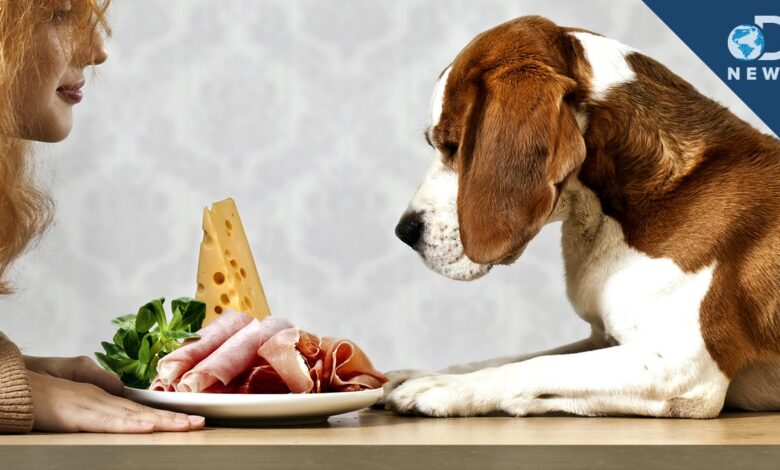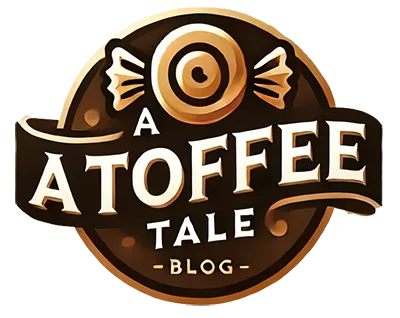Dog-Friendly Human Foods: What to Share and What to Avoid at 2024

Human Foods- Ever wondered if your furry companion can enjoy some of your favorite snacks? Knowing which human foods are safe for dogs is not just about sharing treats—it’s about their health and well-being. Certain human foods, like fruits and vegetables, can provide additional nutrients and variety to your dog’s diet. However, not all human foods are safe for dogs, and some can even be harmful. That’s why it’s crucial to consult with your veterinarian before introducing any new foods.
Feeding dogs certain human foods can offer potential benefits, from added vitamins and antioxidants to promoting dental health and providing lean protein. Your veterinarian can offer personalized advice based on your dog’s breed, age, and individual health needs. They can help you navigate which foods are safe and how to incorporate them safely into your dog’s diet. By working together with your vet, you can ensure that your dog enjoys a balanced and nutritious diet that supports their overall health.Now lets explore some safe human foods for dogs.
Safe Fruits for Dogs-Human Foods
Offering fruits as treats to your dog can be a healthy and enjoyable way to supplement their diet with vitamins, minerals, and antioxidants. While dogs have specific dietary needs, these fruits are generally safe and beneficial when given in appropriate portions and prepared properly:
Apples
Apples are a crunchy and nutritious snack for dogs, containing fiber and vitamins A and C. However, it’s important to remove the seeds and core before feeding them to your dog, as they contain cyanide which can be harmful.
- Provides fiber that supports digestive health
- Vitamins A and C contribute to overall immune system support
Blueberries
Blueberries are rich in antioxidants and fiber, making them a beneficial snack for dogs. They are low in calories and can be served fresh or frozen as a refreshing treat.
- Antioxidants help protect cells from damage caused by free radicals
- Fiber supports gastrointestinal health and can aid in weight management
Bananas
Bananas are a good source of potassium and vitamins such as B6 and C. They are easy to digest and can provide a quick energy boost for active dogs.
- Potassium supports heart function and muscle health
- Vitamins B6 and C contribute to overall immune system support
Watermelon
Watermelon is hydrating and low in calories, making it a refreshing snack for dogs, especially on hot days. It contains vitamins A, B6, and C, as well as antioxidants like lycopene.
- Provides hydration, which is important for overall health
- Lycopene may help protect against certain types of cancer
Strawberries
Strawberries are packed with fiber and vitamin C, making them a nutritious addition to your dog’s diet. They also provide manganese, which supports bone health and metabolism.
- Fiber promotes gastrointestinal health and can help regulate bowel movements
- Vitamin C supports immune function and skin health
By offering these fruits as occasional snacks and treats to your dog, you can provide them with additional nutrients and variety while promoting their overall health and well-being.
Safe Vegetables for Dogs
Human Foods- Incorporating vegetables into your dog’s diet can provide essential nutrients, fiber, and variety. These vegetables are safe and beneficial when given in appropriate portions and prepared properly:
Carrots
Carrots are crunchy and low in calories, making them an excellent snack for promoting dental health in dogs. They are rich in beta-carotene, which supports eye health, and fiber, which aids in digestion.
- Promotes dental health by helping to clean teeth and gums
- Beta-carotene supports eye health and immune function
Green Beans
Green beans are nutritious and low in calories, making them a suitable treat for dogs, especially those watching their weight. They are high in fiber, which supports digestive health, and contain vitamins like K and C.
High fiber content promotes gastrointestinal health
Vitamins K and C support bone health and immune function
Sweet Potatoes
- Sweet potatoes are rich in fiber, vitamins A, C, and B6, making them a nutritious vegetable for dogs. They also provide antioxidants that support immune health and promote a healthy coat.
- Fiber supports digestive health and can help regulate bowel movements
- Antioxidants support immune function and overall health
Peas
Peas are packed with vitamins and minerals, including vitamins A, B1, B6, C, and K, as well as iron, magnesium, and potassium. They contribute to a balanced diet and provide essential nutrients for overall health.
- Provides essential vitamins and minerals that support various bodily functions
- High fiber content supports digestive health
Cucumbers
- Cucumbers are hydrating and low in fat, making them a refreshing snack for dogs. They contain vitamins K and C, as well as potassium, which supports heart health.
- Hydrating properties help maintain moisture balance
- Low-calorie option for dogs on a weight management plan
By offering these vegetables as part of your dog’s diet in moderation and ensuring they are properly prepared, you can provide them with essential nutrients and support their overall health and well-being.
Safe Proteins and Dairy for Dogs
Human Foods- Including safe proteins and dairy in your dog’s diet can provide essential nutrients, support muscle development, and contribute to overall health. These options are generally safe and beneficial when given in appropriate portions and prepared properly:
Cooked Chicken
- Cooked chicken is a lean protein source that is easily digestible for dogs. It provides essential amino acids that support muscle growth and repair, making it a popular choice for homemade dog meals and treats.
- Lean protein supports muscle development and maintenance
- Ensure chicken is cooked thoroughly and served plain without seasoning or bones
Salmon
- Salmon is rich in omega-3 fatty acids, which support heart health, reduce inflammation, and promote a shiny coat and healthy skin in dogs. It is also a high-quality protein source that provides essential vitamins and minerals.
- Omega-3 fatty acids support brain function and joint health
- Serve salmon cooked and without seasoning or bones to avoid digestive issues
Eggs
- Eggs are a protein-rich food that contains all essential amino acids necessary for dogs. They are also rich in vitamins such as B12, riboflavin, and selenium, which support immune function and overall well-being.
- Complete protein source that supports muscle development and energy levels
- Serve eggs cooked thoroughly and avoid adding salt or other seasonings
Turkey
- Turkey is a lean protein option that is low in fat and easy for dogs to digest. It provides essential amino acids and can be used as a tasty treat or added to their regular meals for variety.
- Low-fat protein supports muscle maintenance and overall health
- Feed turkey cooked and without skin or bones to prevent choking hazards
Plain Greek Yogurt
- Plain Greek yogurt is a nutritious dairy option for dogs that contains probiotics, which support digestive health, and protein, which aids in muscle repair and growth. It can be served plain or mixed with other dog-safe ingredients.
- Probiotics promote a healthy gut flora and can help with digestion
- Choose plain Greek yogurt without added sugars or artificial sweeteners
By incorporating these safe proteins and dairy options into your dog’s diet in moderation and ensuring they are properly prepared, you can provide them with essential nutrients and support their overall health and well-being.
Foods to Avoid Sharing with Your Dog
Human Foods- While there are many human foods that are safe and beneficial for dogs, there are also several foods that can be harmful or toxic to them. It’s important to be aware of these items and avoid sharing them with your canine companion:
Chocolate
- Chocolate contains theobromine and caffeine, which are toxic to dogs. Even small amounts can cause vomiting, diarrhea, rapid breathing, increased heart rate, and seizures. Dark chocolate and baking chocolate are especially dangerous due to their higher theobromine content.
- Theobromine can affect a dog’s nervous system and heart
- Symptoms of chocolate poisoning include restlessness, tremors, and potentially fatal heart arrhythmias
Grapes and Raisins
- Grapes and raisins can cause kidney failure in dogs, even in small amounts. The exact toxic substance in these fruits is unknown, but ingestion can lead to vomiting, diarrhea, lethargy, and ultimately, kidney failure within a few days.
- Symptoms may not appear immediately, making early veterinary intervention crucial
- Avoid all forms of grapes and raisins, including cooked, dried, and grape-containing products like grape juice
Onions and Garlic
- Onions and garlic, whether raw, cooked, or powdered, contain compounds that can damage a dog’s red blood cells and lead to anemia. Symptoms of toxicity include weakness, vomiting, breathlessness, and pale gums.
- All forms of onions and garlic should be avoided, including onion powder and cooked dishes containing these ingredients
- Toxicity can occur from a single ingestion or repeated exposure over time
Avocado
Avocado contains a substance called persin, which can cause vomiting and diarrhea in dogs. While the flesh of ripe avocados is less toxic, the pit and skin pose a choking hazard, and larger quantities can lead to more severe symptoms.
Symptoms of avocado poisoning in dogs include difficulty breathing, fluid accumulation in the chest, and pancreatitis
Keep avocados and products containing avocado out of reach of dogs
Alcohol
- Alcohol and foods containing alcohol can cause severe poisoning in dogs. Even small amounts can lead to intoxication, vomiting, diarrhea, difficulty breathing, tremors, coma, and death.
- Dogs are much more sensitive to alcohol than humans due to their smaller size and different metabolism
- Keep alcoholic beverages, foods cooked with alcohol, and products containing alcohol-based flavorings away from dogs
By avoiding these foods and being aware of potential hazards, you can help keep your dog safe and healthy. If you suspect your dog has ingested any of these items or shows symptoms of poisoning, contact your veterinarian immediately for guidance and treatment.
Tips for Feeding Dogs Human Foods Safely
Human Foods- Introducing human foods to your dog’s diet can offer variety and additional nutrients, but it’s important to do so safely to ensure their well-being. Follow these tips to responsibly incorporate human foods into your dog’s diet:
- Introduce new foods gradually: When introducing a new human food to your dog, start with small amounts to monitor how they react. This helps prevent digestive upset and allows you to observe any potential allergies.
- Monitor for any adverse reactions: Watch for signs of allergic reactions or digestive issues after giving your dog a new food. Symptoms may include vomiting, diarrhea, itching, or changes in behavior. If any adverse reactions occur, discontinue the food and consult your veterinarian.
Serve foods plain, without added seasonings or sauces: Many human foods contain ingredients like salt, garlic, or onions that can be harmful to dogs. Always serve foods in their plain, unseasoned form to avoid any potential toxicities.
- Ensure foods are cut into appropriate sizes: Depending on your dog’s size, cut foods into smaller, bite-sized pieces to prevent choking. This is especially important for hard or crunchy foods like vegetables or fruits.
- Maintain a balanced diet: While human foods can be given as treats or supplements, the majority of your dog’s diet should consist of balanced, dog-specific foods that meet their nutritional needs. Ensure they receive a complete and balanced diet formulated for their age, size, and health status.
Human Foods- By following these tips, you can safely incorporate human foods into your dog’s diet, providing them with variety and additional nutrients while prioritizing their health and well-being.




